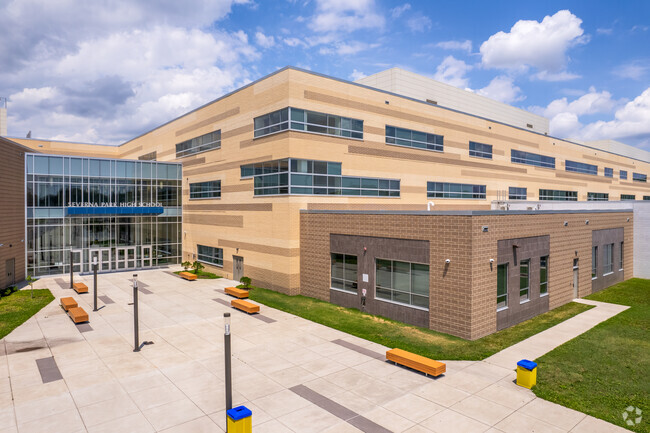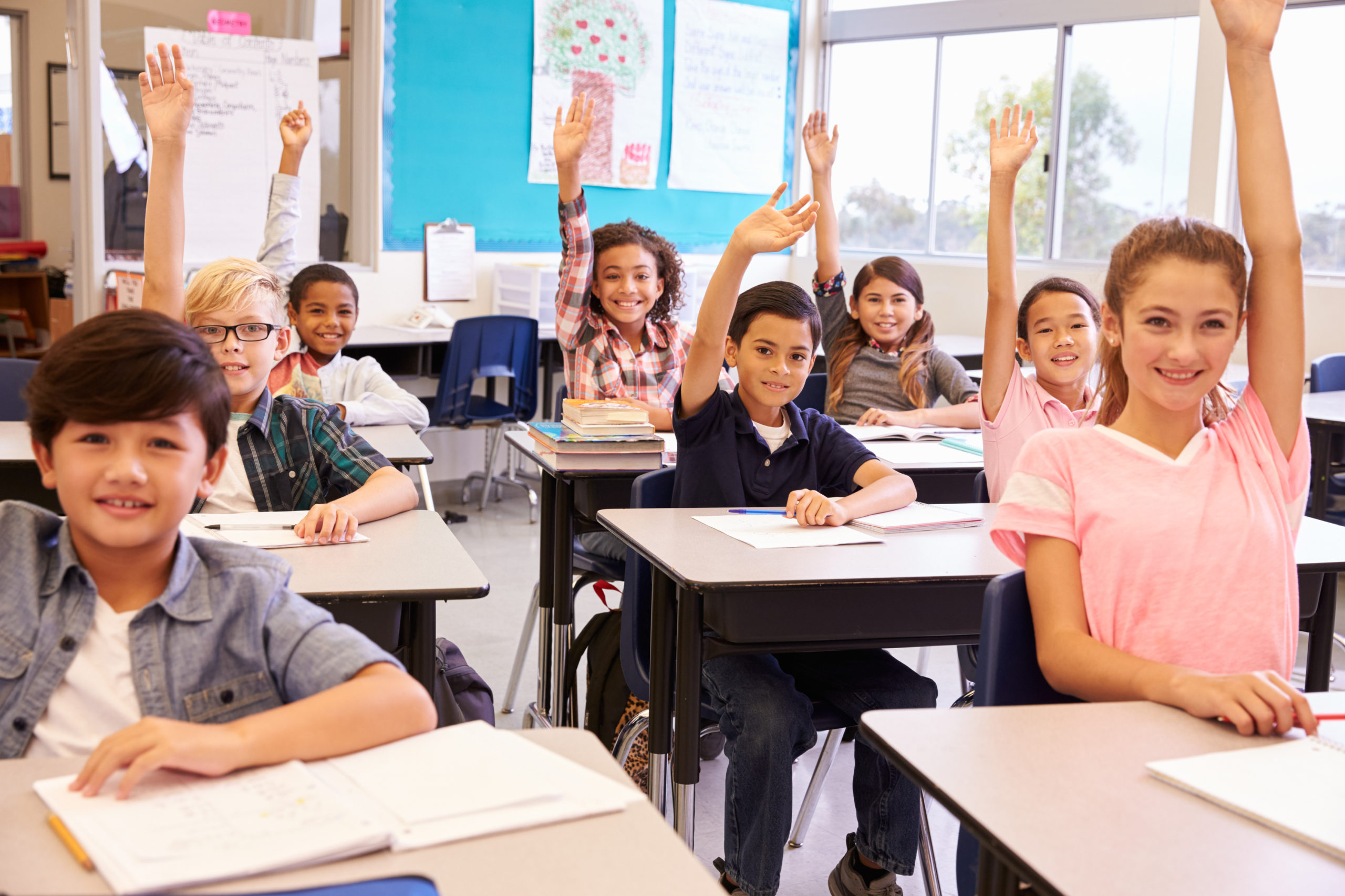Explore the Difficulties Facing Our Area: Save Temecula Schools
Explore the Difficulties Facing Our Area: Save Temecula Schools
Blog Article
Recognizing the Relevance of Institutions in Child Development and Area Development
Colleges' involvement with local neighborhoods with service-learning efforts reinforces the bond in between households and educational institutions. This symbiotic relationship emphasizes the significance of schools in supporting active citizenship and lifelong learning behaviors.
Academic Achievement
Academic achievement offers as a keystone of kid development, giving the foundation whereupon future knowing and success are constructed. Schools play a crucial role in cultivating this academic development, offering structured atmospheres where kids can acquire important knowledge and cognitive abilities. Standardized curricula guarantee that pupils gain proficiency in core topics such as mathematics, scientific research, and language arts, which are important for both greater education and professional opportunities.
Along with imparting fundamental scholastic abilities, schools additionally grow critical thinking, analytic capacities, and intellectual curiosity. These cognitive competencies are crucial for browsing complicated real-world situations and adjusting to the ever-evolving demands of the modern office. Teachers, as facilitators of knowing, employ varied pedagogical techniques to accommodate varied understanding styles, therefore making the most of private pupil capacity.
Additionally, academic success is very closely connected to self-worth and motivation. Kids who experience academic achievements are extra likely to develop a favorable self-concept and a long-lasting interest for knowing. Colleges additionally supply different sources, such as collections and innovation, which additionally improve the instructional experience and prepare trainees for a technically sophisticated society.
Social Skill Development
Beyond scholastic achievement, the duty of institutions in social skill growth is indispensable. Schools offer as a main venue for children to learn and practice necessary social skills such as teamwork, conflict, and interaction resolution. In the structured environment of a classroom, pupils interact with peers, educators, and other school staff, supplying many chances to establish these essential capacities.
Efficient social skill advancement in institutions is facilitated via team tasks, collective projects, and extracurricular programs. These communications help pupils recognize social norms, build compassion, and cultivate a sense of community. As an example, team tasks instruct students exactly how to function with each other in the direction of a typical goal, listen to various viewpoints, and navigate arguments constructively.

The cultivation of social abilities throughout college years lays a foundation for future personal and expert connections. Save Temecula Schools. As pupils develop, the ability to effectively collaborate and communicate ends up being increasingly vital, emphasizing the college's crucial role in all natural kid development
Exposure to Diversity
Exposure to variety in schools is basic to cultivating an inclusive way of thinking and widening pupils' point of views. Schools act as a microcosm of the broader culture, and coming across diverse cultures, languages, and socioeconomic backgrounds within this setting gears up students with necessary skills for browsing an increasingly globalized globe. This exposure urges empathy, minimizes prejudices, and advertises mutual regard among peers.
Research study shows that students who engage with peers from diverse histories exhibit far better problem-solving abilities and imagination. This understanding of variety prepares pupils for future work environments that value modern capability - Save Temecula Schools.

Neighborhood Engagement
The benefits of diverse class expand past the school walls, cultivating a solid sense of area engagement among students. By engaging with peers from different cultural, socioeconomic, and ethnic histories, students acquire a wider viewpoint and a gratitude for diversity. This exposure encourages them to end up being active residents who agree to add positively to their areas.
Institutions that emphasize neighborhood involvement frequently include service-learning jobs, which allow students to attend to real-world troubles while using academic skills. These projects not only improve students' understanding of their coursework yet additionally instill a sense of responsibility and empathy. Partnerships in between institutions and regional organizations provide pupils with possibilities to get involved in community occasions, additionally strengthening their function as proactive area participants - Save Temecula Schools.
Additionally, adult and area participation in colleges reinforces the bond between universities and the communities they serve. When institutions open their doors to neighborhood occasions, workshops, and volunteer opportunities, they produce a joint atmosphere that benefits all stakeholders. This mutual support system guarantees that trainees receive alternative growth, preparing them to end up being all-around people who value and contribute to their areas. With these efforts, schools play a critical duty in nurturing area involvement and fostering societal development.
Lifelong Knowing Behaviors
Establishing lifelong discovering behaviors is important for a youngster's continual growth and adaptability in an ever-changing world. Colleges play a crucial role in instilling these behaviors by creating a setting that cultivates curiosity, critical thinking, and a love for expertise. Via extracurricular activities and diverse curricula, educators urge pupils to check out various topics, analyze details critically, and use their discovering to real-world scenarios.

In addition, schools provide an organized setting where children can develop self-control and time administration abilities, both of which are critical for constant discovering. By stressing the value of establishing objectives, mirroring on progression, and adapting strategies, universities prepare trainees to navigate the intricacies of grown-up life, ensuring they continue to be lifelong students and contributors to society.
Final Thought
In final thought, schools are crucial in promoting youngster advancement and area development by supplying environments favorable to scholastic achievement, social ability growth, and exposure to diversity. Ultimately, institutions grow long-lasting learning routines, equipping people with the necessary knowledge and abilities to contribute positively to society.
In the structured environment of a class, students interact with peers, teachers, and various other institution personnel, supplying many opportunities to develop these crucial capacities.
In essence, exposure to diversity within institutions not only enhances private students but also enhances the social material of the area as a whole.
The advantages of diverse classrooms extend beyond the institution walls, promoting a solid sense of neighborhood engagement among trainees.Schools that emphasize neighborhood engagement typically incorporate service-learning jobs, which enable students to attend to real-world issues while applying scholastic abilities. Partnerships between institutions and local organizations provide trainees with possibilities to get involved in community occasions, even more solidifying their function as positive community members.
Report this page